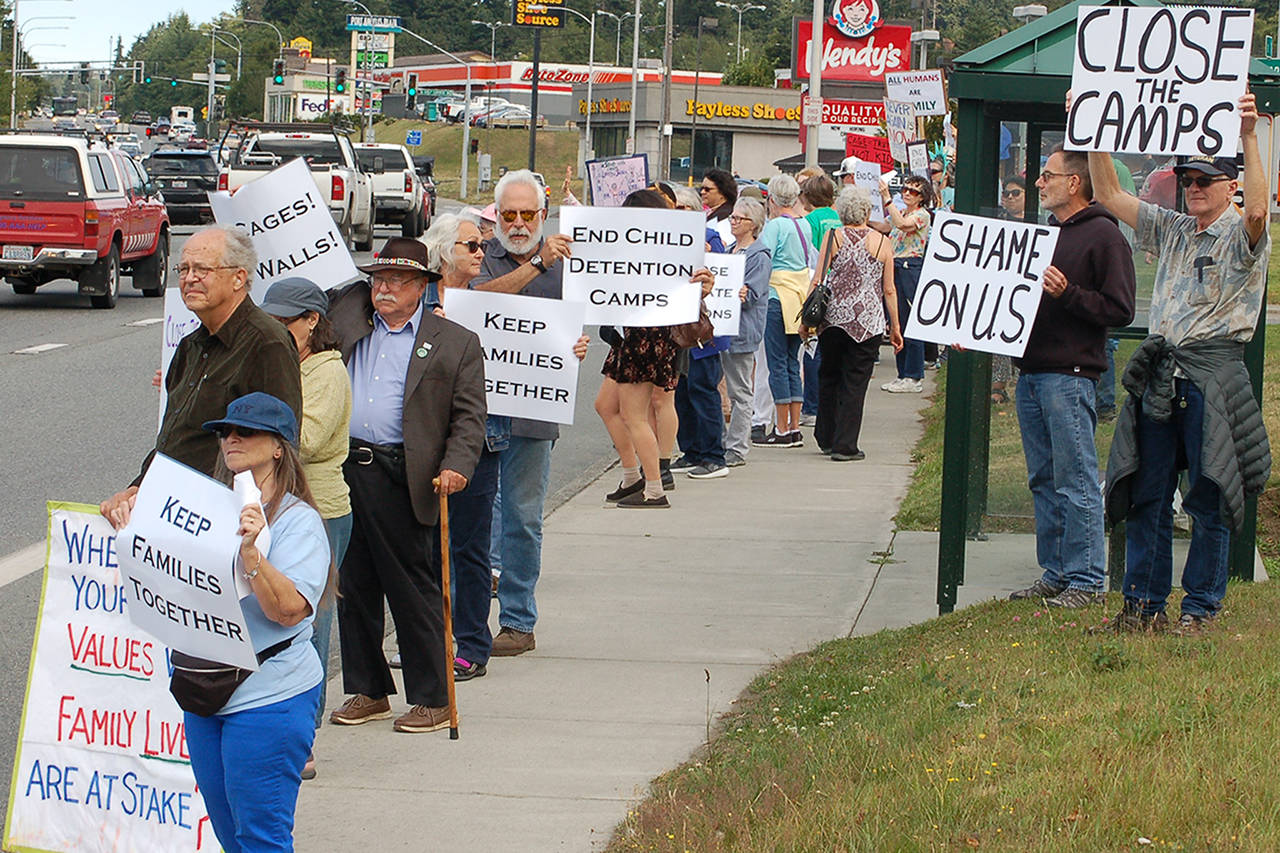Participants with Indivisible Sequim and several other groups protested outside the Port Angeles office of the Customs and Border Protection agency on July 12 against the detainment camps and facilities run by CBP, Immigration and Customs Enforcement (ICE) and other agencies. Many of these camps are currently regarded as overcrowded, with critics labeling conditions as “inhumane.”
“The camps need to be closed, period,” said Joan Cotta, one of Indivisible Sequim’s leaders and organizers of the protest. “We need to be better.”
Fellow organizer Elizabeth Schilling said that “our elected officials have to get their act together on border issues and immigration. What’s happening in these camps right now is not acceptable.”
Joining Indivisible Sequim were members of several other groups like Olympic Peninsula Progressives, as well as numerous individuals who learned about the protest and wanted to join from themselves, including a number of people from Port Angeles and Port Townsend.
By the time the protest started at 5 p.m. there were nearly 60 people present and an hour later about 90.
People of all demographics were present including seniors, children, teens, younger adults, African Americans, Latinos, veterans and more.
Many drivers going by on East First Street showed their support with honking and appreciative gestures.
Some were less supportive, such as passing drivers that screamed at or argued with protesters.
Among the protesters themselves, the mood was generally positive though.
Liz Bumgarner, the chairwoman of the Clallam County Democrats, said “the camps are not what most Americans want, but the issue is even larger than that. We need intelligent, studied immigration reform.
“There are people in dangerous, unsustainable situations who need help,” Bumgarner continued. “It’s hard for some people to see from our country, but people here would cross borders too if they were living in those conditions.”
Several Vietnam veterans were present, including Clipper Beaudett, who was moved to tears while talking about what’s happening in the camps. “My heart breaks and I feel ill to my stomach just thinking about it,” Beaudett said. “No child deserves to be treated like this. What’s wrong with sympathy?”
Beaudett was referring to the treatment of children at these facilities, where they are separated from their parents and other family members. According to a Los Angeles Times report in May, six migrant children died in federal custody between September 2018 and May 2019.
Many of the protesters pointed to the treatment of children in these facilities as a major reason the facilities need to be closed down.
“This moment in history is so scary to be a part of,” said protester Megan Monk.
Monk’s friend, a Port Angeles resident who only wanted to be known as Tea, said that as a member of the Jewish community it was important to show solidarity.
“I talk to family, I talk to friends’ families, and there’s so much they talk about what they know about the German (concentration) camps that resonates with what we’re seeing today,” Tea said.
While the CBP office had closed for the day when the protests started, Cotta mentioned that her communications both with that office and the Port Angeles Police Department for arranging the protest was “very receptive” to their organization and getting the protest put together.



